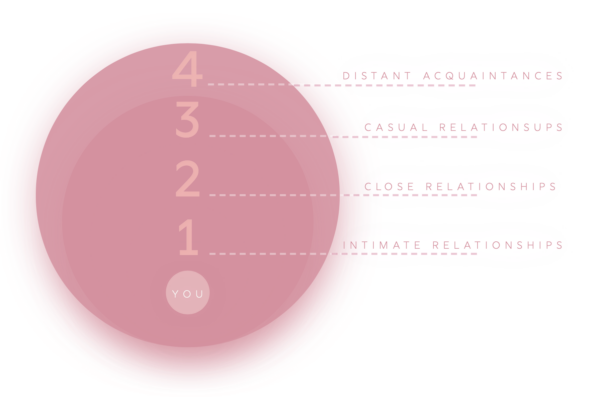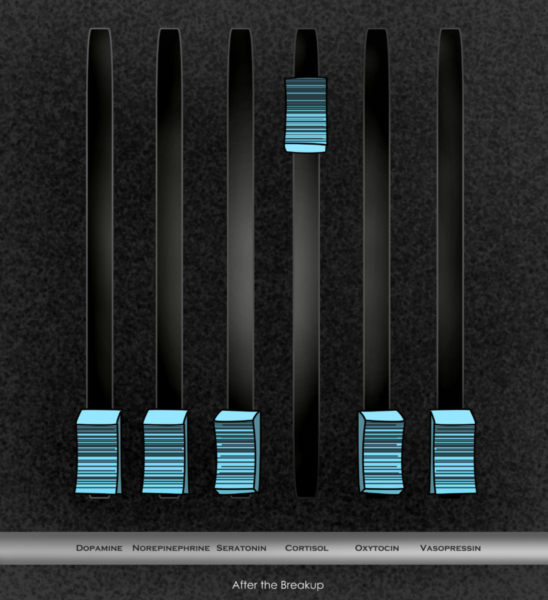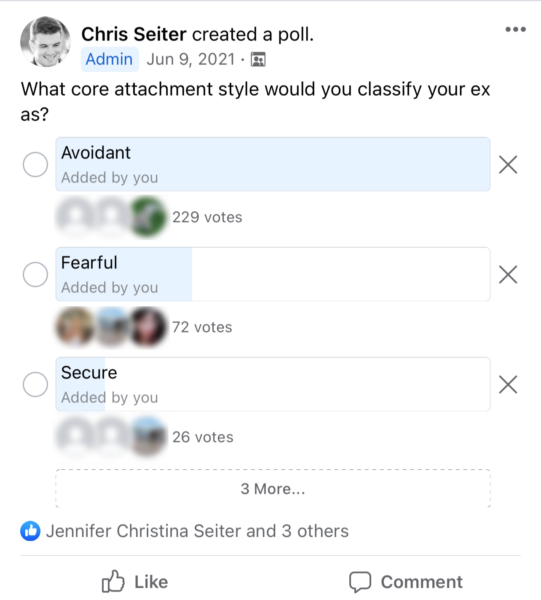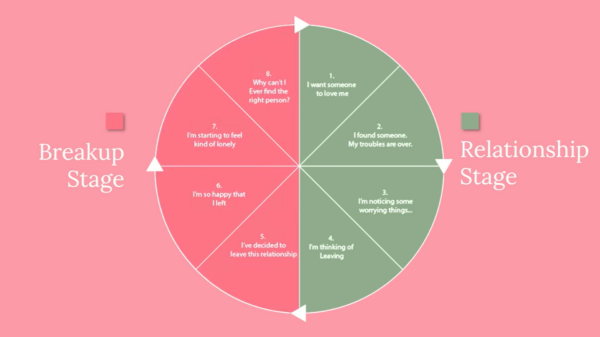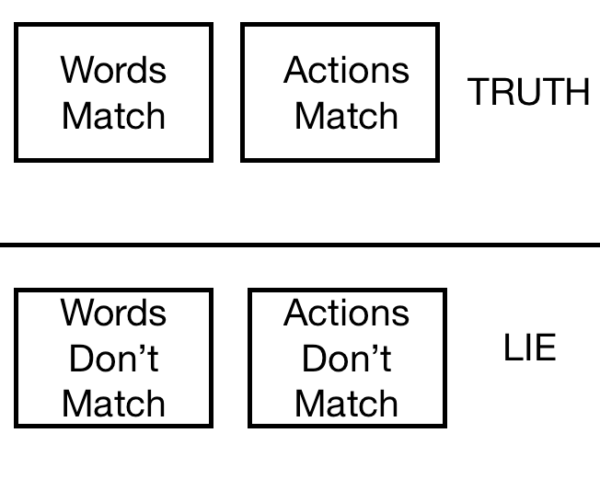I sat down and figured out the major ways you can expect an ex to test you after a breakup (so you don’t have to.)
In all there are six clear tests you’ll notice that emerge,
- Third party spies
- Avoidant nostalgic reverie indirect reach outs
- The item exchange test
- Passive aggressive comments hidden within social media posts
- Fake genuine interest to validate their dating value
- Making you their supply
As always, my intention is to take you through each of these steps one by one.

What Are Your Chances of Getting Your Ex Boyfriend Back?
Take the quizTest #1: Third Party Spies
Okay, let’s kick off with our first ‘test’ – the Third Party Spy game.
It’s pretty much the most obvious tactic in the book, right?
If you’ve been reading my stuff on Ex Boyfriend Recovery, you’ll know that I go on and on about the concept of the ‘sphere of influence’.
It’s all those people you and your ex both know, whose opinions actually matter to you.
Now, this sphere has layers, like an onion.
(I know… ha ha… I made a Shrek Joke)
Closest to the core are your intimate relationships:
- Best friends
- Family
- Lovers.
Then, you’ve got:
- Your general friends
- Work buddies a little further out.
This just keeps expanding, layer by layer. (See the graphic above if you have any more questions)
So what we often see happening post-breakup, is the ex leveraging these mutual friends to do a little detective work.
I’m not kidding when I say I’ve seen exes specifically ask mutual friends to drop your name into a conversation, all to fish for info. Next thing you know, this mutual friend is reporting back to your ex about your latest escapades.
Want to know how I know?
I’ve been there, done that, both as the spy and the spy-ee.
In fact, I remember after one breakup, I told my best friend – who happened to also be pals with my ex – to casually chat with her. You know, see what she was up to.
Of course, he was all in.
And this isn’t just face-to-face stuff, folks.
You see it on social media too. If your ex has blocked you, chances are their curiosity will get the better of them. They might get a friend who’s still in your social circle to screenshot your posts, then pass them along like some top-secret intel.
So why is this Third Party Spy test a thing?

What Are Your Chances of Getting Your Ex Boyfriend Back?
Take the quizWell, I reckon it’s got a lot to do with cortisol – the stress hormone.
You see, in the midst of a breakup, your cortisol levels shoot up. It makes you jittery, anxious. And even if you’re trying to play it cool on the surface, chances are you’re still obsessing over your ex on the inside.
In this weird tug-of-war with yourself, you’re doing your best to look unfazed, while internally, you’re grappling with this heartache. That’s where the third-party spies come in, fueling this cortisol-fueled curiosity without making you look desperate.
Pretty messed up, right?
Test #2: Avoidant nostalgic reverie indirect reach outs
Alright, let’s dive into the second big test – the Avoidant Nostalgic Reverie Indirect Reach Outs.
That’s quite the mouthful, isn’t it?
To wrap our heads around this, we first need to establish a baseline about the kind of exes we typically encounter in our program.
From our client data, we’ve discovered that approximately 65% of the exes we study have what we call dismissive avoidant attachment styles.
If your ex falls into this category, chances are they won’t be eager to chat much right after the breakup. Instead, they often go through this ‘separation elation’ phase.
A few years back I drew up a cool infographic a while back called the ‘Avoidant Death Wheel’ which outlines the eight stages an avoidant individual cycles through, starting from the honeymoon period of a relationship, all the way to the months following a breakup.
What seems to surprise folks the most is how thrilled avoidants can be right after a relationship ends.
They bask in this ‘separation elation’ phase, but eventually, it gives way to a wave of nostalgia and sadness.
And here’s an interesting thing – research shows that if you appear to be moving on from a dismissive avoidant, it kind of gives them a green light to miss you.
This is when they start reminiscing about the good times and maybe feel a bit blue, perhaps even adopting a ‘poor me’ mindset.
I talk about this a lot in this video,
But what’s fascinating is that this is usually the point where they break their own rule of ‘no contact’ during a breakup.
The first sign of this ‘rule-breaking’ – or ‘test’ if you will – often comes in the form of indirect interaction.
They might start liking your social media posts, viewing your Instagram reels, or even drop a comment, though it’ll likely be pretty basic.
If you see this pattern, especially a few months post-breakup when you two haven’t been in much contact and you seem to be moving on, they’re likely testing the waters.

What Are Your Chances of Getting Your Ex Boyfriend Back?
Take the quizNot necessarily because they want you back, but perhaps they’re seeking a bit of validation.
They might be feeling nostalgic, reflecting on the good times and peak moments, and might be a bit down about the breakup. But they’re too shy – or maybe too proud – to reach out directly. Instead, they use these indirect methods. So, if you notice this behavior, it’s usually them trying to gauge where you’re at and whether you’ve truly moved on.
Test #3: The Item Exchange Test
Now, when you’re dating someone, it’s totally normal to end up with a collection of their stuff.
One test that exes often throw our way happens during the item exchange.
Here’s the deal with this test.
Your ex will ask for their things back, you agree, but then they cancel last minute and reschedule. It’s like a pogo stick, one moment they’re adamant about retrieving their stuff, the next they’re blowing it off.
So why the mind games?
What’s their angle?
Well, in my opinion, the intent behind these ‘tests’ often boils down to two things.
- First, they want that ego boost from knowing they could still get you back.
- Second, they’re checking if you still have them on a pedestal.
I talk a lot about the pedestal effect in this video,
So, when they cancel the item exchange, they’re likely soaking up that ego boost, thinking they still have the power to get you back.
They notice how willing you are to meet up, then decide they’re not up for it.
Then, a few weeks later, the cycle repeats.
They’re constantly checking your interest in seeing them.
Test #4: The Passive Aggressive Comments
Now, moving onto number four – the passive aggressive comments hidden within social media posts.
We’ve all been there, posting something we later regret.
However, those who’ve been through breakups and are social media savvy, won’t typically post things that could be directly linked back to their ex.
What you’ll probably see instead are sly, passive aggressive comments. Subtle digs about you without explicitly mentioning you. But a word of caution here – don’t fall into the trap of thinking every post your ex makes is about you. That’s not the case, and I don’t want you going down that rabbit hole.
So what does a passive aggressive social media comment look like?
Let’s consider the most common scenario: A few weeks post-breakup, your ex posts a motivational quote about how one should treat their partner. Something like this,

What Are Your Chances of Getting Your Ex Boyfriend Back?
Take the quizThe underlying message?
You didn’t treat them right, and they want everyone to know it – albeit subtly.
Their goal here is to gain public support without making it about you.
It’s about how relationships ‘should be’, but they’re trying to justify their decision to break up. The likes, comments, and discussions that follow give them a sense of power, a boost.
This actually ties in with the concept of narcissistic supply, but we’ll delve into that a little later.
Test #5: Fake Genuine Interest To Validate Their Dating Value
For this one, I’d like to lean on some research.
There was a study in the Journal of Social and Personal Relationships that stated people who rebound, who find new partners,
Often have higher self-esteem than those who don’t in the post-breakup period.
I think this is key because it shows we’re always looking to validate our dating value.
What is a breakup, if not one person thinking ‘I can do better than you’? The whole ‘grass is greener’ syndrome is sprinkled throughout every breakup I’ve come across.
The underlying message, though unsaid, is that they believe they can do better.
Yet, when they venture out there, they realize the grass isn’t as green as they thought and dating isn’t as easy as they anticipated.
And when they’re not getting the validation they crave, it can be quite a blow to their ego. They might start second-guessing their decision and that’s when they circle back to you.
They show this ‘genuine’ interest, but what they’re really doing is looking for a validation boost. You’re basically there to reassure them that ‘Yes, someone still wants me’.
Now, how can you spot this?
Honestly, there’s no straightforward way, other than to watch and wait to see if their actions align with their words.
Just yesterday, I wrote about the significance of words and actions, and how to use them to identify when an ex might be misleading you.
Here’s the deal – if your ex says something, and their actions back it up, they’re likely being honest.
But if their words are all sweet nothings and their actions say otherwise, it’s probably not genuine. They might be spinning you a tale. So, keep your eyes open and your instincts sharp.
Test #6: They View You As Supply
It’s rare to come across someone with Narcissistic Personality Disorder (NPD).
Just a few days ago, I was in a conversation with a psychologist, Dr. G, discussing this very topic.
I asked him outright, “How likely is it that most of my clients’ exes have NPD?” Many of my clients, no disrespect to them, tend to assume that their exes have NPD.
However, as Dr. G pointed out, it’s unlikely that every ex has NPD – only about 1 to 1.5% of the population does.
However, that doesn’t negate the fact that some exes might exhibit narcissistic tendencies, even if they’re not full-blown narcissists.
To understand this, you need to grasp how a narcissist operates.
A narcissist’s existence revolves around this concept of ‘supply.’ They’re constantly seeking someone who can provide them with external or internal validation, be it meeting their physical or emotional needs.
I’ve coined the term ‘Narcissistic Rolodex’ to describe their behavior.
Essentially, they have a list of individuals who they know they can rely on to provide this ‘supply.’ These are people they can turn to for intimacy, emotional support, or even something as casual as a gym buddy. The troubling part is, they don’t perceive these individuals as human beings, but rather, sources of supply.
What you need to be careful about is if you notice your ex only reaches out when they need something. In such cases, they might not be viewing you as a potential romantic interest, but merely as a source of supply, which is a distinct trait of narcissistic personalities.
If you identify this behaviour in your ex, it’s vital not to feed into their demands. Many people make the mistake of giving in, driven by their codependency and their desire to win their ex back. It’s essential not to follow this path.
Not only does this distinguish you from the crowd, but it also sends a message to your ex that they’re going to be miserable without you. And honestly, you want them to feel that way because it not only increases your value in their eyes but also establishes a boundary.
This boundary communicates that the benefits they seek are only available within the context of a relationship with you. Otherwise, they’re on their own.
